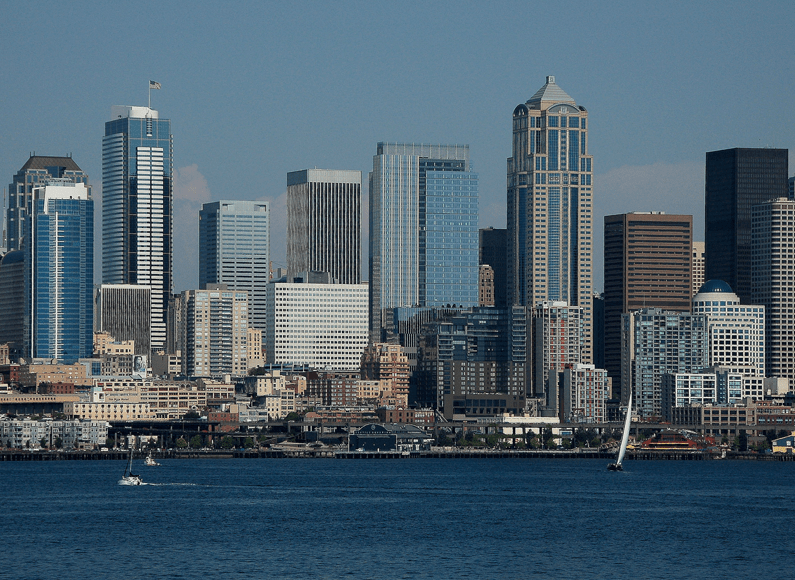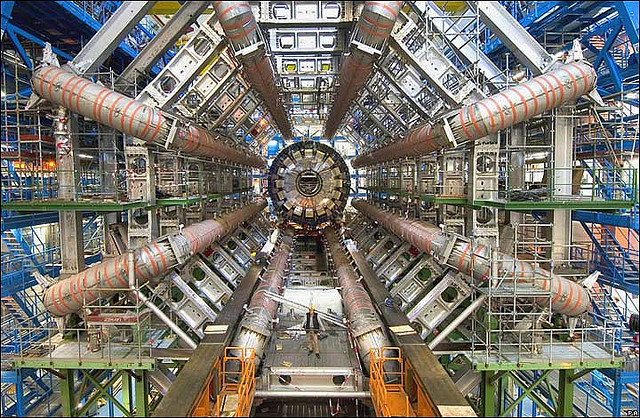Good work humanity! After landing on a comet, here’s 10 other amazing things that we have accomplished.

Today is a good day. The European Space Agency’s Philae lander has achieved touchdown on the surface of an asteroid that is 510 million km from Earth. That’s right – humanity has managed to do something truly awesome for a change, and it fills us with hope.
So forget the wars, poverty and Dapper Laughs – here are 10 more amazing things that humanity has managed to do.
[/nextpage]
[nextpage title=”Next”]
Massively increase human life expectancy
We don’t even think about it, but isn’t it amazing that we can broadly expect to live into our 80s? Just a few centuries ago human life expectancy was around 30 years old – but thanks to advances in medicine and public health, we’re no longer dying of cholera when we drink water – and if we get injured, we in most cases just get patched up again. Perhaps one of the most significant things that humanity has managed to do is reduce child mortality significantly – which is one of the main drivers of what made the previous average so low.
Whilst there are still big differences around the world – with Subsaharan Africa not enjoying the same increase in average life expectancy, you have to admit this is a pretty astonishing achievement.
[/nextpage]
[nextpage title=”Next”]
Educate pretty much everyone so they can read
You may think that the fact that you can read this sentence is no big deal – I mean, why would you? In most developed countries the literacy rate is upwards of 99%, but again until relatively recently in history that hasn’t been the case: Reading and writing used to be the preserve of the rich and powerful – but thanks to technological innovations like the printing press, this vital skill has been disseminated so now that everyone can grow intellectually.
[/nextpage]
[nextpage title=”Next”]

Build amazing bridges like this
The bridge above is the Øresund Bridge. It isn’t half finished, but is in fact one of the most astonishing feats of engineering. The bridge links Copenhagen in Denmark with Malmo in Sweden, and in order to keep the channel of water between the two clear for ships, half way along the bridge dives under water and turns into a tunnel – for both road and rail traffic.
How incredible is that? Human engineering can create gigantic superstructures, taming the landscape around us and bending it to shape our needs. In addition to the astonishing engineering, it is also a great example of international cooperation. Brilliant.
[/nextpage]
[nextpage title=”Next”]

Make air travel so routine that it becomes boring
You know how annoying it is when you go on holiday: Packing, making sure you’ve got your passport, partially undressing for the x-ray machine and all of that tedious waiting around in the departure lounge… how annoying!
But hold on a second: You’re being propelled in a metal tube, tens of thousands of feet in the air, at hundreds of miles per hour, to the other side of the world in mere hours… how is this not astonishing? How can you get on a plane without spending the whole flight staring out of the window, stunned at what is happening to you?
But no, you’re going to sit there complaining about leg room, sighing at the food and furiously subtweet the airline when they delay your trip by 45 minutes. When Marco Polo left Venice and went to China, it took him 24 years to get back home again.
[/nextpage]
[nextpage title=”Next”]
Predict a fundamental particle with maths… and then build a massive machine which proves it RIGHT
Brilliantly. humankind has invented mathematics – a language for describing the universe and being able to manipulate numbers allows us to make predictions. Perhaps one of the starkest example of this is the Large Hadron Collider: Essentially, Peter Higgs did the maths and figured out that the Higgs Boson must exist, in order to make the sums add up when dealing with the fundamental building blocks of the universe. £7bn later and the world has managed to build a gigantic loop deep underground in Switzerland to see if he is right… and as we know, it turns out that he was.
Isn’t that incredible? Not just the fact that we were able to harness the resources to build a massive machine to test something highly theoretical… but the fact that we’re clever enough to have guessed correctly.
[/nextpage]
[nextpage title=”Next”]
Not be completely wiped out by Ebola
So Ebola is obviously a huge problem and tens of thousands of people are at risk – but hey, put it into historical perspective and things aren’t so bad. When the Black Death hit in the middle ages it wiped out large swathes of the population of Europe – but now hundreds of years later we know how to handle infectious disease – knowing what techniques are best for stopping the spread, as well as having the tools to coordinate global efforts to fight it and warn the public.
Unlike early diseases, ebola isn’t an existential threat – sure, it is horrible, but we’ll get over it pretty quickly.
[/nextpage]
[nextpage title=”Next”]

Landing humans on THE MOON
Okay, it’s an obvious one but is still probably humanity’s greatest moment: We managed to send 12 living, breathing people to the surface of another planetary body, and bring them back in one piece. Less than 70 years after the Wright Brothers first flight, we managed to build a massive rocket, leave Earth Orbit, land and take-off on another world… and have live TV pictures of it happening. Incredible.
[/nextpage]
[nextpage title=”Next”]

Build massive cities
Cities are not just amazing technical achievements in terms of architecture, but they are also astonishing machines in terms of how we as humanity have managed to developed processes that enable so many people to live in close proximity. We’ve developed institutions that means that shops have stuff in them to buy, and to ensure that rubbish is dealt with. Cities necessarily broke up familial and tribal relationships, and forced us to live as individuals interacting with impersonal institutions – giving us a shared stake in our managing our interactions – and cities are great engines for new ideas. Cities and their engineering is a huge human achievement.
[/nextpage] [nextpage title=”Next”]
Global Positioning System
We rarely think about it but the reason we know where we’re going on our phones is all thanks to 24 satellites surrounding the earth above our heads. No longer do we have to navigate using the stars, but we can now track ourselves to within feet, anywhere on the surface of the earth. Whilst it was originally conceived as a military system by the United States, GPS was eventually opened up to civilian use and has changed all of our lives (not just in our own navigation but in terms of transport and shipping). Is it not amazing that we have managed to conceive of these satellites, blast them into space and have them consistently work?
[/nextpage]
[nextpage title=”Next”]

The internet
And finally, you can’t celebrate human achievement without celebrating the very means by which you’re reading this now. Thanks to Tim Berners-Lee, Vincent Cerf and thousands of others we now have two-way mass communication at our fingertips. Thanks to the internet, we can not only now stream hundreds of old kids TV shows on demand on Netflix, but the scourge of pub arguments have become a thing of the past.
Oh, and it has completely revolutionised the way we do pretty much everything.
Isn’t it amazing what humanity can do when we work together?
[/nextpage]





